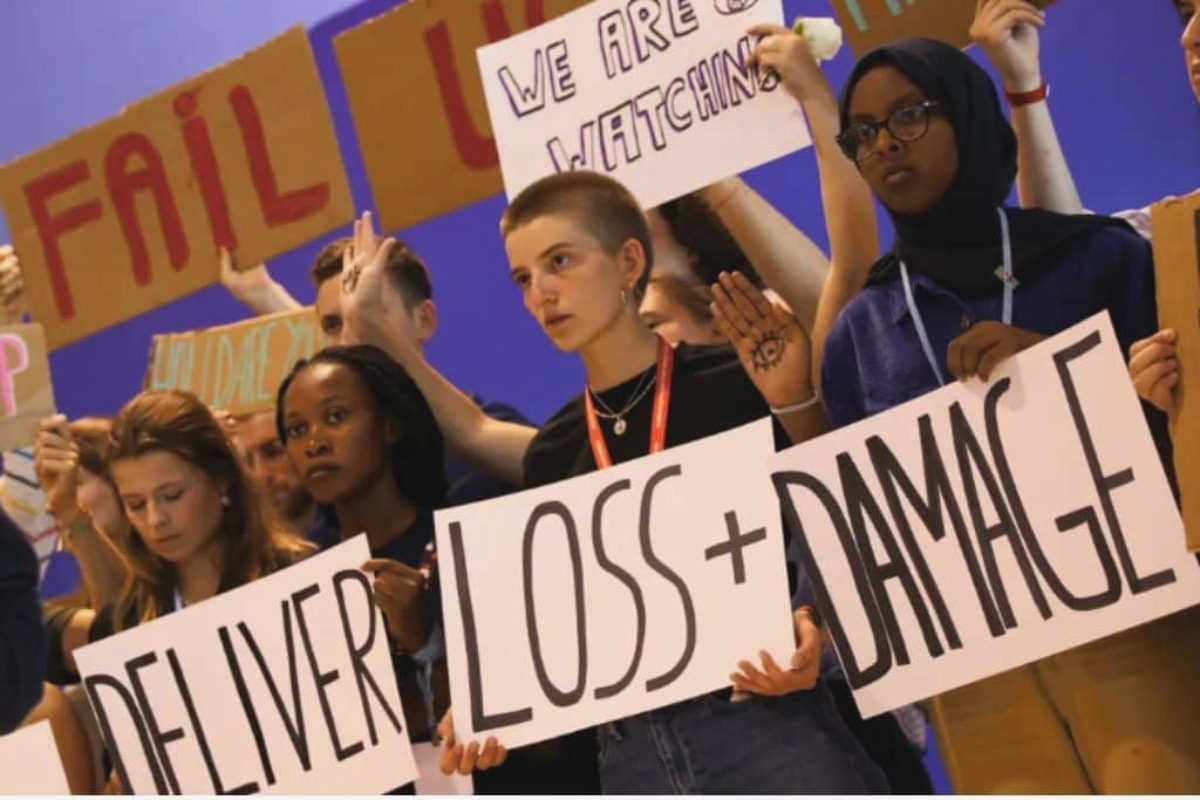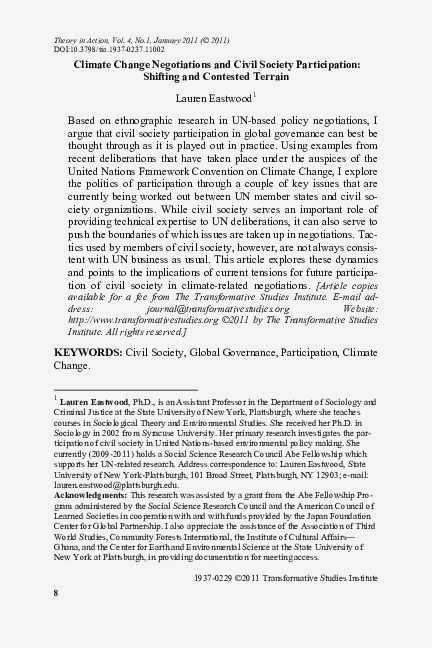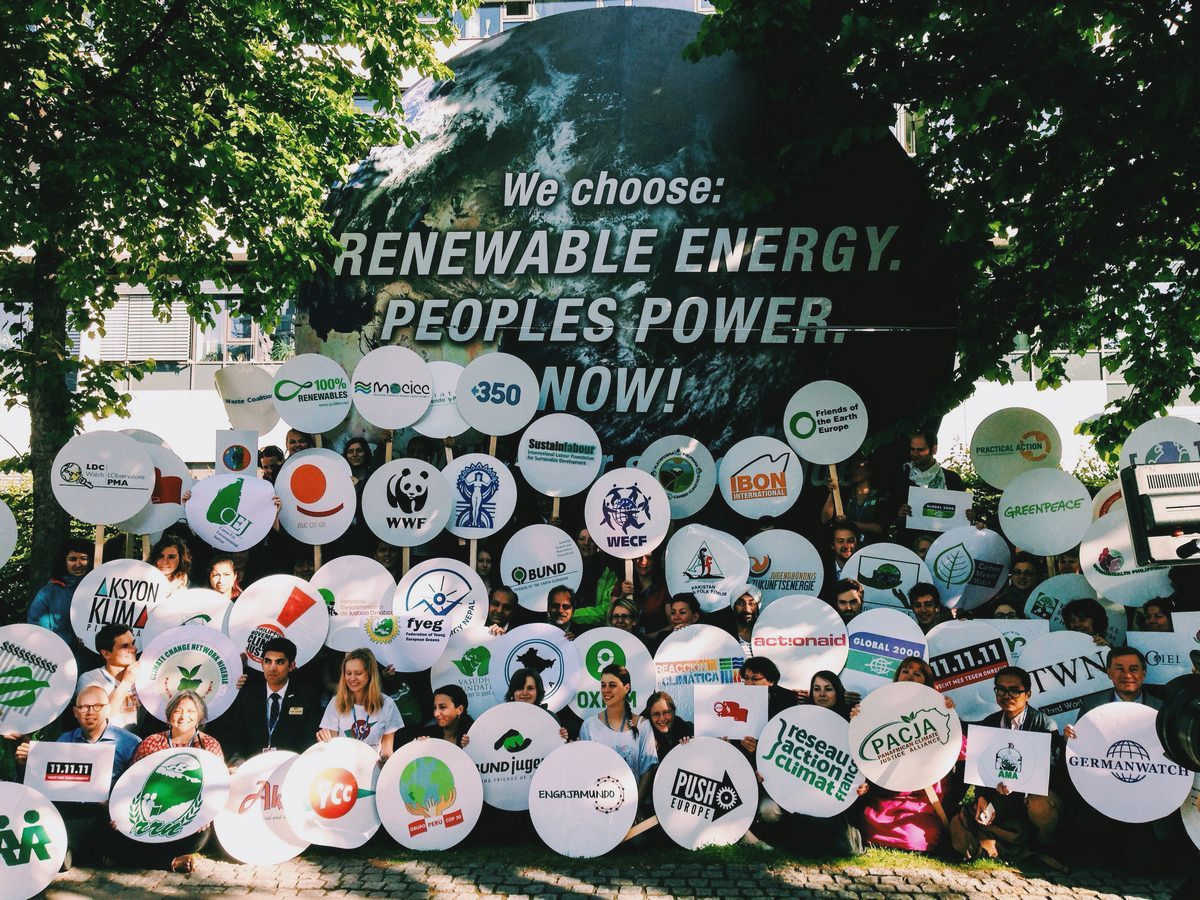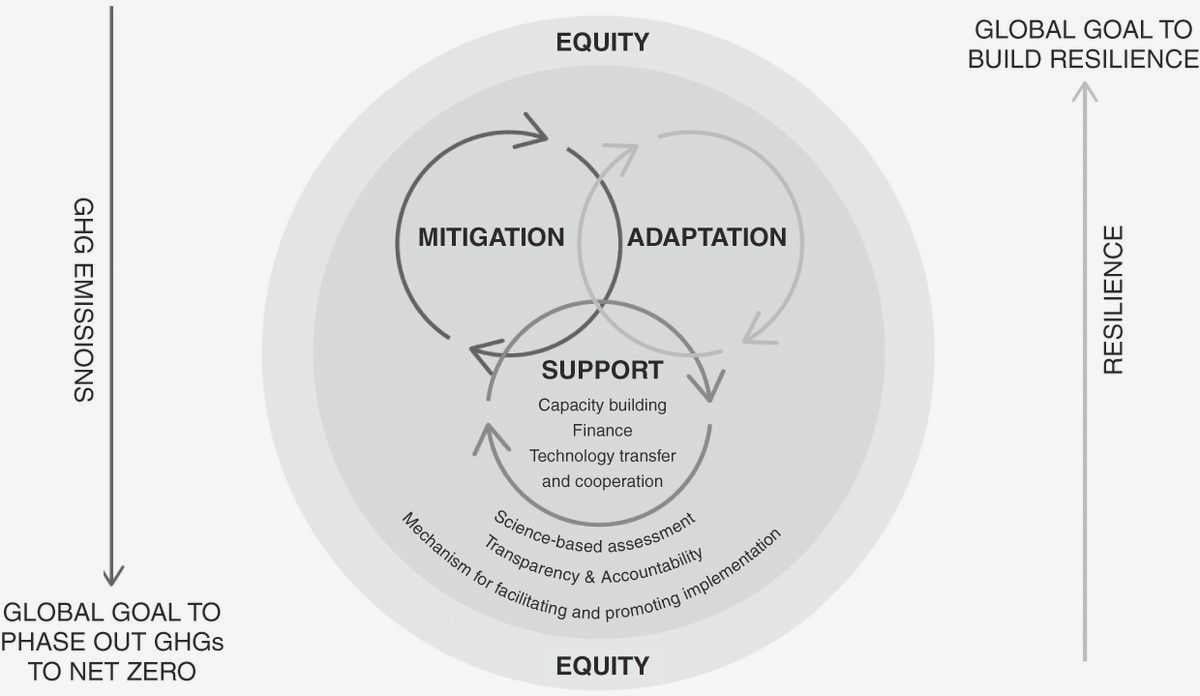Climate change is one of the most urgent and pressing issues facing the world today. The need for effective and ambitious international climate agreements has never been greater. While governments and policymakers play a crucial role in these negotiations, the power of civil society should not be underestimated. Through grassroots activism and global advocacy, civil society has the ability to drive change and push for more ambitious climate action.
Civil society organizations, ranging from environmental non-profits to indigenous peoples’ groups, have been at the forefront of climate activism for decades. These organizations bring together individuals and communities with a shared passion for environmental protection and climate justice. They have the ability to mobilize people, resources, and expertise to hold governments accountable and push for stronger commitments in international climate negotiations.
The power of civil society lies in its ability to amplify the voices of those most affected by climate change. It provides a platform for marginalized communities, indigenous peoples, and youth to share their experiences and demand action. Civil society organizations work tirelessly to ensure that the needs and concerns of these communities are taken into account in global climate negotiations. By providing a space for dialogue and collaboration, civil society bridges the gap between policymakers and communities, fostering a more inclusive and equitable approach to climate action.
Furthermore, civil society organizations often act as watchdogs, monitoring the implementation of climate agreements and holding governments accountable for their commitments. They provide independent assessments and analysis, highlighting areas where progress is lacking and advocating for stronger action. Their expertise and research help to inform and shape policy decisions, ensuring that climate agreements are based on sound science and evidence.
In conclusion, civil society plays a crucial role in driving international climate negotiations from the ground up. Through grassroots activism, global advocacy, and independent monitoring, civil society organizations have the power to push for more ambitious climate action and hold governments accountable. Their ability to amplify the voices of marginalized communities and provide a platform for dialogue makes them invaluable partners in the fight against climate change.
The Role of Civil Society in International Climate Negotiations
Civil society plays a crucial role in international climate negotiations by acting as a catalyst for change, mobilizing public support, and holding governments accountable. Unlike governments and corporations, civil society represents the voice of the people and brings diverse perspectives and expertise to the table.
1. Advocacy and Lobbying: Civil society organizations (CSOs) actively engage in advocacy and lobbying activities to influence climate policies and negotiations. They provide expert knowledge, research, and analysis to policymakers, highlighting the need for urgent action and pushing for stronger commitments.
2. Mobilizing Public Support:
One of the key strengths of civil society is its ability to mobilize public support and raise awareness about climate change issues. Through grassroots campaigns, protests, and social media activism, CSOs rally support from citizens, creating the pressure needed to push governments towards more ambitious climate goals.
3. Facilitating Dialogue and Cooperation:
Civil society acts as a bridge between various stakeholders, facilitating dialogue and cooperation between governments, businesses, and communities. CSOs create platforms for exchange, enabling the sharing of knowledge, best practices, and innovative solutions that can drive positive change.
4. Monitoring and Accountability:
Civil society plays a critical role in monitoring the implementation of climate agreements and holding governments accountable for their commitments. CSOs track progress, conduct independent assessments, and report on the effectiveness of policies and actions, ensuring transparency and pushing for stronger accountability measures.
5. Empowering Vulnerable Communities:
Civil society organizations prioritize the voices and needs of vulnerable communities that are disproportionately affected by climate change. They work to empower these communities through capacity-building initiatives, providing them with the necessary tools and resources to adapt to the impacts of climate change.
In conclusion, civil society plays an essential role in international climate negotiations by advocating for change, mobilizing public support, facilitating dialogue, monitoring implementation, and empowering vulnerable communities. Its active involvement is crucial in driving ambitious climate action and ensuring that the interests of all stakeholders are considered in the decision-making process.
Understanding the Influence of Civil Society
Civil society plays a vital role in shaping and driving international climate negotiations. Through their advocacy, grassroots campaigns, and mobilization efforts, civil society organizations can influence policymakers and governments to take meaningful action on climate change.
Influence through advocacy: Civil society organizations, such as environmental NGOs, can utilize their expertise and research to provide evidence-based arguments and policy recommendations to decision-makers. By engaging in dialogue and presenting alternative solutions, they can shape policy discussions and push for more ambitious climate targets.
Grassroots campaigns: Civil society also has the power to mobilize public opinion and create a sense of urgency around climate change. Through grassroots campaigns, organizations can raise awareness, educate the public, and inspire individuals to take action. By mobilizing a large number of people, civil society can put pressure on governments to prioritize climate action.
Influence in international negotiations: Civil society organizations can participate in international climate negotiations as observers, providing input and voicing the concerns of local communities and marginalized groups. They can pressure governments to uphold their commitments, hold them accountable for their actions, and advocate for the rights and interests of those most affected by climate change.
Building coalitions and alliances: Civil society organizations also have the power to build coalitions and alliances with other actors, such as businesses, academia, and faith-based groups. By forming broad-based partnerships, they can amplify their message and increase their influence on climate policy.
Advocacy and Policy Impact of Civil Society Organizations
Civil society organizations play a crucial role in advocating for policy change and influencing international climate negotiations. Through their diverse networks and grassroots initiatives, these organizations are able to mobilize public support and raise awareness about the urgent need to address climate change.
One of the key ways in which civil society organizations exert their advocacy and policy impact is by conducting research and providing evidence-based recommendations to policymakers. They engage in scientific studies, data collection, and analysis to better understand the impacts of climate change and identify effective mitigation and adaptation strategies. By presenting these findings to decision-makers, they contribute to the development of informed and evidence-based policies.
Civil society organizations also serve as important watchdogs, holding governments accountable for their commitments and actions on climate change. Through monitoring and reporting, they highlight instances of non-compliance or inadequate implementation of policies and agreements. This helps to create pressure on governments and promotes transparency and accountability in environmental governance.

Furthermore, civil society organizations have a unique ability to bridge the gap between local communities and international climate negotiations. They act as intermediaries, representing the voices and concerns of marginalized groups and indigenous communities. By amplifying these voices, they ensure that the perspectives of those most affected by climate change are taken into account in policy decisions.
In addition to their advocacy and research efforts, civil society organizations often engage in direct action and public campaigning to raise awareness and generate public support for climate action. They organize protests, demonstrations, and public events to mobilize the public and put pressure on governments to take decisive action on climate change.
The policy impact of civil society organizations is further enhanced through collaboration and networking. They often form coalitions and partnerships with other civil society groups, advocacy organizations, and academic institutions to amplify their voices and influence policy outcomes.
In conclusion, civil society organizations play a crucial role in advocating for policy change and influencing international climate negotiations. Through their research, advocacy, direct action, and collaboration efforts, they have a significant impact on shaping policies and driving action towards addressing the urgent challenges of climate change.
Mobilizing Communities for Climate Action
Communities play a critical role in addressing the challenges of climate change. By mobilizing individuals and local organizations to take action, we can make a significant impact on reducing carbon emissions and adapting to a changing climate.
Educating and Empowering
One of the key strategies for mobilizing communities is through education and empowerment. By providing information on the causes and impacts of climate change, we can raise awareness and build support for action. Empowering individuals with the knowledge and tools to reduce their carbon footprint and advocate for sustainable practices is also essential. This can be done through community workshops, educational campaigns, and online resources.
Building Local Networks
Another important aspect of mobilizing communities is building local networks and partnerships. By fostering collaboration among community groups, NGOs, businesses, and government agencies, we can create a collective effort to address climate change. These networks can facilitate the sharing of best practices, resources, and expertise. They can also help coordinate local initiatives and projects that contribute to the overall climate action.
Fostering Sustainable Practices
Mobilizing communities for climate action also involves promoting and reinforcing sustainable practices at the individual and community level. This can include encouraging energy-efficient behaviors, promoting renewable energy sources, supporting local agriculture, and advocating for sustainable transportation options. By making sustainable choices a part of everyday life, communities can have a substantial impact on reducing greenhouse gas emissions and building resilience to climate change.
In conclusion, mobilizing communities for climate action is a crucial component of addressing the global challenge of climate change. Through education, empowerment, building local networks, and fostering sustainable practices, communities can make a significant contribution to mitigating and adapting to the impacts of climate change. By coming together and taking action, we have the power to drive international climate negotiations from the ground up.
Enhancing Transparency and Accountability
Transparency and accountability are key components of effective climate negotiations and the broader global effort to address climate change. In order to drive international action and ensure that commitments are met, it is crucial that all stakeholders have access to accurate and up-to-date information.

One way to enhance transparency and accountability is through the development of robust reporting mechanisms. This can involve the establishment of clear guidelines for reporting on emissions reductions, adaptation measures, and financial contributions. By requiring countries and organizations to regularly report on their progress, we can ensure that they are held accountable for their commitments.
Another important aspect of enhancing transparency is the use of independent verification. By implementing a system of checks and balances, we can ensure that the reported data is accurate and reliable. This can involve the use of third-party auditors or international organizations to review and verify reported information.
Furthermore, public participation and engagement play a crucial role in enhancing transparency and accountability. By involving civil society, NGOs, and other stakeholders in the negotiation process, we can ensure that different perspectives are taken into account and that decisions are made in the best interest of all. Public consultations and open forums can provide a platform for stakeholders to voice their concerns and contribute to the decision-making process.
Lastly, the establishment of clear and enforceable consequences for non-compliance is essential for enhancing accountability. By setting clear expectations and penalties for countries and organizations that fail to meet their commitments, we can ensure that there are real consequences for inaction. This can help incentivize compliance and encourage all stakeholders to take their commitments seriously.
In conclusion, enhancing transparency and accountability is crucial for driving international climate negotiations and ensuring that commitments are met. Through the development of robust reporting mechanisms, independent verification, public participation, and clear consequences for non-compliance, we can create a more transparent and accountable global climate governance system.
Civil Society’s Contribution to Innovative Solutions
Civil society plays a crucial role in driving innovative solutions to address climate change. Through grassroots initiatives, advocacy, and research, civil society organizations bring together diverse perspectives and expertise to develop and implement creative approaches to tackle the complex challenges of climate change.
One way in which civil society contributes to innovative solutions is through their ability to mobilize and empower communities. By engaging and educating local communities, civil society organizations promote awareness and understanding of climate change, encouraging individuals to take action and contribute to sustainable practices. This bottom-up approach ensures that solutions are tailored to the specific needs and contexts of communities, leading to effective and sustainable outcomes.
Civil society also plays a critical role in bridging the gap between local communities and global climate negotiations. By advocating for the inclusion of community perspectives and priorities in international agreements, civil society organizations ensure that policies and actions are rooted in the experiences and realities of those most affected by climate change. This inclusion fosters a sense of ownership and participation, making the solutions more effective and durable.
Furthermore, civil society organizations often act as catalysts for innovation by fostering collaboration and knowledge sharing. Through partnerships with governments, businesses, and other stakeholders, civil society organizations facilitate the exchange of ideas, expertise, and resources, leading to the development and implementation of innovative solutions. By leveraging their networks and expertise, civil society organizations enable the scaling up of successful pilot projects and the replication of effective strategies, driving transformative change at a global scale.

In summary, civil society’s contribution to innovative solutions is vital in addressing the challenges of climate change. Through their grassroots efforts, advocacy, and collaboration, civil society organizations empower and mobilize communities, bridge the gap between local and global perspectives, and foster collaboration and innovation. By harnessing the power of civil society, we can drive international climate negotiations from the ground up and create a sustainable future for all.
The Power of Grassroots Movements
Grassroots movements have a significant impact on driving social change, including in the fight against climate change. These movements are characterized by their bottom-up approach, driven by the collective actions and efforts of ordinary individuals, communities, and local organizations.
One powerful aspect of grassroots movements is their ability to raise awareness and mobilize people at the local level. By organizing community events, educational campaigns, and public demonstrations, grassroots movements bring attention to the urgent need for action on climate change. They create spaces for dialogue and engagement, allowing individuals to become more informed and inspired to take action.
Furthermore, grassroots movements can serve as a catalyst for policy change and influence decision-making processes. Through their advocacy efforts, they can put pressure on governments and policymakers to adopt more ambitious climate targets, allocate funds for renewable energy projects, and implement environmentally sustainable policies. By amplifying the voices of those most affected by climate change, grassroots movements ensure that their concerns and demands are taken into account in international climate negotiations.
Grassroots movements also have the power to foster innovation and create sustainable solutions at the local level. By encouraging individuals and communities to adopt more environmentally friendly practices, such as reducing waste, promoting renewable energy, and supporting sustainable agriculture, these movements contribute to building a more sustainable future.
Overall, the power of grassroots movements lies in their ability to mobilize people, raise awareness, advocate for change, and drive local innovation. Their collective efforts can have a profound impact on international climate negotiations, ensuring that the voices of ordinary citizens are heard and that meaningful action is taken towards a more sustainable and resilient future.
Influence of Indigenous Peoples and Local Communities
Indigenous peoples and local communities play a critical role in driving international climate negotiations from the ground up. These groups have a deep understanding and connection to the environment, and their traditional knowledge can offer valuable insights into sustainable practices and conservation efforts.
One way in which indigenous peoples and local communities have influenced climate negotiations is through their active participation and representation in various international forums and conferences. Their voices and perspectives have been increasingly recognized and included in the decision-making processes related to climate change. This inclusion has helped to highlight the importance of traditional knowledge and indigenous practices in addressing the challenges posed by climate change.
Moreover, indigenous peoples and local communities have also been at the forefront of grassroots movements and initiatives aimed at raising awareness about climate change and advocating for stronger policies and actions. Their engagement and mobilization have been instrumental in pushing for more ambitious targets and commitments from governments and other stakeholders. Examples include protests, campaigns, and demonstrations carried out by indigenous peoples and local communities around the world to demand climate justice and greater protection of their lands and natural resources.
Furthermore, indigenous peoples and local communities have been actively involved in the implementation and monitoring of climate programs and projects within their territories. Their role as custodians of the land and guardians of biodiversity makes them crucial partners in efforts to mitigate and adapt to climate change. Their traditional practices, such as sustainable agriculture, forest management, and water conservation, can offer valuable solutions for climate resilience and ecosystem restoration.
To ensure the effective participation and influence of indigenous peoples and local communities in climate negotiations, it is essential to address the structural barriers they face, such as limited access to resources, marginalization, and discrimination. It is also important to recognize and respect their rights, including the right to free, prior, and informed consent, as enshrined in the United Nations Declaration on the Rights of Indigenous Peoples. By empowering these communities and supporting their initiatives, we can harness their knowledge, wisdom, and resilience to drive positive change in the fight against climate change.
Building Alliances and Partnerships
Building alliances and partnerships is crucial for driving international climate negotiations from the ground up. Civil society organizations play a key role in this process, as they work together with governments, businesses, and other stakeholders to push for climate action and advocate for sustainable solutions.
Collaboration: Civil society organizations collaborate with each other, as well as with governmental and non-governmental entities, to share knowledge, resources, and expertise. This collaboration allows for a more coordinated and effective approach in driving climate negotiations and influencing policy decisions.
Networking: Networking is an essential tool in building alliances and partnerships. Civil society organizations actively participate in conferences, workshops, and forums where they can connect with like-minded individuals, exchange ideas, and form new partnerships. These networks help to amplify their voices and increase their collective impact on climate negotiations.
Coalitions: Creating coalitions is another strategy used by civil society organizations to build alliances and partnerships. By joining forces with other groups that share similar goals and values, they can pool their resources and expertise to achieve a greater impact. These coalitions allow for a more unified approach in advocating for climate action.

Engaging stakeholders: Civil society organizations engage with various stakeholders, including governments, businesses, communities, and individuals, to build partnerships and alliances. They work towards finding common ground and identifying shared interests to create win-win solutions for all parties involved. Engaging stakeholders in meaningful dialogue and collaboration is vital for driving international climate negotiations.
Evidence-based advocacy: To build strong alliances and partnerships, civil society organizations rely on evidence-based advocacy. They gather and analyze data, conduct research, and produce reports to support their arguments and recommendations. By presenting credible and reliable information, they can gain the trust and support of other stakeholders, leading to stronger alliances and partnerships.
Table:
| Civil society-government partnership | A collaborative effort between civil society organizations and government entities to drive climate negotiations and implement sustainable policies. |
| Business-civil society alliance | An alliance between businesses and civil society organizations to promote sustainable practices and advocate for climate action. |
| South-South cooperation | A partnership between developing countries to share knowledge, resources, and best practices in tackling climate change. |
Challenges and Opportunities for Civil Society
Civil society plays a crucial role in driving international climate negotiations and addressing the challenges posed by climate change. However, civil society also faces its own set of challenges and opportunities in this field.
Challenges:
- Funding: One of the biggest challenges for civil society organizations is securing adequate funding to carry out their climate change-related initiatives. Lack of financial resources can hamper their ability to research, advocate, and implement impactful projects.
- Influence: Civil society organizations often have to compete with powerful stakeholders, such as governments and corporations, for influence within international climate negotiations. They may face obstacles in gaining a seat at the table or having their voices heard.
- Capacity building: Building the necessary capacity and expertise within civil society organizations to effectively engage in climate change advocacy and negotiations can be a challenge. This includes understanding the complexities of climate science, international legal frameworks, and policy processes.
- Communication and coordination: Collaboration and coordination among different civil society organizations from diverse backgrounds and regions can be challenging. Communicating and aligning objectives, strategies, and messages requires time, effort, and effective mechanisms.
Opportunities:
- Public mobilization: Civil society has the power to mobilize public support and create a groundswell of public opinion in favor of ambitious climate action. Through grassroots movements, awareness campaigns, and social media, civil society can amplify their message and influence public opinion.
- Advocacy and lobbying: Civil society organizations can engage in advocacy and lobbying efforts to influence policy decisions and push for stronger climate commitments from governments and international bodies. Their expertise and networks can be leveraged to bring about meaningful change.
- Data and research: Civil society organizations can contribute to the body of knowledge on climate change through data collection, research, and analysis. This can provide evidence-based arguments and recommendations to inform policy decisions and strengthen the scientific case for urgent action.
- Collaboration with other stakeholders: Civil society organizations can forge alliances and collaborate with other stakeholders, including the private sector, academia, and local communities, to drive collective action on climate change. Building partnerships can enhance their capacity, resources, and impact.
Overall, while civil society faces challenges in the field of climate change, there are also significant opportunities for them to contribute to international negotiations and advance climate action at the grassroots level.
Future Prospects of Civil Society in Climate Negotiations
The future prospects of civil society in climate negotiations are promising, as the role of non-state actors continues to grow in importance. Civil society organizations, including NGOs, community groups, and grassroots movements, have been instrumental in driving action on climate change at the local, national, and international levels. Their expertise, advocacy, and ability to mobilize public support have proven to be valuable assets in advancing ambitious climate goals.

Increased Influence: As the urgency of addressing climate change becomes more widely recognized, civil society organizations are gaining increased influence in climate negotiations. Their ability to represent the voices and concerns of communities directly impacted by climate change is crucial for ensuring that the outcomes of these negotiations are equitable and inclusive.
Partnerships and Collaboration: The future of civil society in climate negotiations also lies in partnerships and collaborations with other stakeholders, including governments, businesses, and academia. By working together, these diverse actors can leverage their respective strengths and resources to drive meaningful change and push for more ambitious climate action.
Innovative Solutions: Civil society organizations are known for their innovative and creative approaches to tackling complex challenges. In climate negotiations, they have the potential to bring forward new and groundbreaking solutions that can help address the urgent issue of climate change. Their ability to think outside the box and propose alternative strategies can be instrumental in breaking through longstanding barriers and driving progress.
Key Advocacy: Civil society organizations play a crucial role in advocating for the interests of vulnerable communities and marginalized groups who are disproportionately affected by climate change. Their ability to raise awareness, build public support, and hold governments and other actors accountable is essential for ensuring that climate negotiations result in effective and equitable solutions.
Educating and Mobilizing: Another important aspect of the future prospects of civil society in climate negotiations is their role in educating and mobilizing the public. By raising awareness about the impacts of climate change and the need for urgent action, civil society organizations can help generate public demand for climate action, putting pressure on governments and other stakeholders to take bold and decisive steps.
In conclusion, civil society organizations have a bright future in climate negotiations. Their increased influence, partnerships and collaboration, innovative solutions, key advocacy, and ability to educate and mobilize the public make them essential actors in driving forward ambitious and effective climate action.





